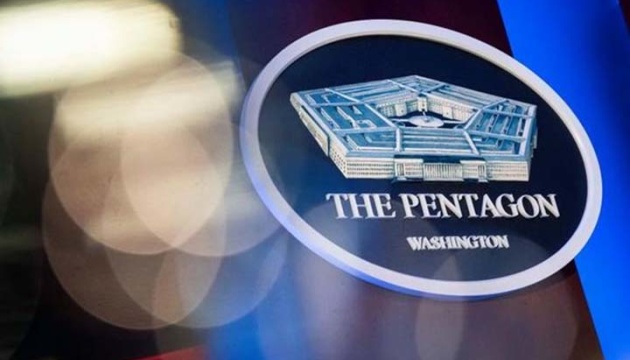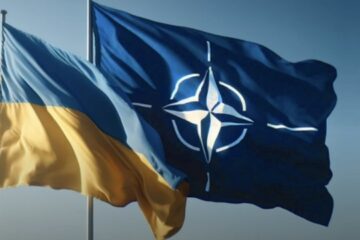
Some of the most impactful leaders have been those who defied conventional expectations, uniting vision, communication, and decisiveness.
When I first heard the news of Pete Hegseth being nominated for Secretary of Defense, my initial reaction mirrored many others’: disbelief. A FOX News commentator stepping into one of the most pivotal roles in national security? It seemed unconventional at best. Yet, upon reflection, it becomes clear that Hegseth’s nomination aligns perfectly with the demands of this precarious historical moment. What might make Hegseth the right choice isn’t a conventional résumé—it’s his role as a great communicator, a skill set that has proven transformative for leaders in tumultuous times.
Historically, the role of Secretary of Defense has been filled by individuals who brought either military experience or the capacity to lead large, complex organizations. But some of the most impactful leaders have been those who defied conventional expectations, uniting vision, communication, and decisiveness. Consider President Zelensky of Ukraine, a former comedian turned global statesman. His now-iconic declaration—“I don’t need a ride, I need ammunition”—galvanized global support in Ukraine’s darkest hours. Similarly, Ronald Reagan, a Hollywood actor, used his extraordinary oratory skills to inspire a nation and face down the Soviet Union, winning the Cold War with words. Their common thread? Communication. In Hegseth, we see a similar capability: the power to articulate a vision clearly, rally allies, and send decisive messages to enemies and adversaries.
The essence of leadership often lies not in micromanagement but in setting a clear vision and empowering a team to execute it
Hegseth, by his own admission, lacks the traditional experience of commanding vast organizations. But the essence of leadership often lies not in micromanagement but in setting a clear vision and empowering a team to execute it. In this respect, having a strong deputy or Undersecretary, such as former DOD official Robert Wilkie, who was being considered for the Secretary role, could effectively manage the Pentagon’s day-to-day operations, allowing Hegseth to focus being the articulate face of American defense policy.
In today’s complex global environment, communication is not merely an asset—it is a weapon. America faces an interconnected web of threats from state actors such as China, Russia, Iran, and North Korea who are coordinating their efforts with non-state actors of Hamas, Hezbollah and the Houthis, against U.S. interests. They are using information warfare to flood social media platforms, to sow division and confusion. In this context, a Secretary of Defense must not only understand the intricacies of military strategy but also convey them to allies, adversaries, and the American public with precision and clarity.
He could be a “muddy boots” Secretary of Defense
Only three of the 28 Secretaries of Defense have been General Officers: Austin, Mattis and Marshall. The other 25 had either no military experience, or more typically, a few years as Junior Military Officers. Hegseth’s service in combat as an Infantry officer in Iraq, Afghanistan and Guantanamo Bay is actually more significant and impressive compared with the other 25 non-General Officers to prepare him to lead a Pentagon with a large percentage of senior and non-commissioned officers with experiences in those war zones. He could be a “muddy boots” Secretary of Defense who would be able to relate to the majority of soldiers, sailors, Marines, airmen, and Coast Guardsmen.
Critics argue that Hegseth’s appointment reflects Trump’s preference for loyalty over expertise. But let us not forget that Trump himself shattered political norms by becoming President, largely due to his ability to communicate effectively. Trump’s Cabinet choices, from Governor Mike Huckabee to Senator Rubio, to Representative Waltz. to Governor Kristi Noem, to Dr. Oz, reflect a deliberate strategy: assembling a team of “The Great Communicators” who can amplify his administration’s vision. In Hegseth, Trump has selected someone who shares his ability to connect directly with the American people while projecting strength to the world.
Hegseth’s appointment also signals a potential shift in how many view the role of Secretary of Defense. Traditionally, the position has been filled by either senior business executives or retired generals. Yet, as the challenges of the 21st century evolve, so too must the profile of its leaders. Hegseth may well be the prototype for a new kind of defense secretary—one who prioritizes communication as a cornerstone of national security. This shift is not without precedent. Recent Secretaries of Defense, such as Generals Mattis and Austin, were a shift in tradition compared to a traditional Secretary of Defense who were not General Officers. They brought unparalleled military expertise to the role but struggled to connect with the public and adapt to the rapid pace of modern information warfare. Hegseth’s background offers a compelling counterpoint: a leader who understands the battlefield and the information space alike.
Being on air for two decades also comes with some challenges. Hegseth’s viewpoints on several topics including Diversity, Equity and Inclusion (DEI), as well as women’s roles in combat, have given the most concern to his appointment. The administration will have to clearly state the administration’s standpoint of these critical positions versus Hegseth’s personal opinions. Those outside the Pentagon are more concerned with Hegseth’s lack of enterprise leadership experience. Those inside the Pentagon are more concerned with his judgment on these critical inclusion issues. Senate hearings are assuredly going to delve into how he can lead with these controversial opinions.
Ultimately, America stands at a crossroads
For skeptics who view Hegseth as more suited to a role like Pentagon Press Secretary, the comparison to Ronald Reagan’s early career is instructive. Reagan’s journey from radio, to Hollywood actor, and to “The Great Communicator” who took down the Soviet Union, was not immediate—it was the result of years of practice and refinement. Hegseth’s path, while unconventional, could mirror this trajectory. He has spent years building a platform and refining his ability to engage on complex military issues, preparing him to step into this pivotal role. The role of a great leader is to take complex subjects and simplify them, to communicate them clearly and concisely.
Ultimately, America stands at a crossroads. We face a world that is not only more dangerous but also more connected than ever before. In such times, the ability to communicate effectively is as critical as the ability to strategize or manage. Pete Hegseth’s appointment may not fit the mold of past Secretaries of Defense, but perhaps that is exactly what this moment requires. If confirmed, he will bring a fresh perspective and a powerful voice to the Pentagon, embodying the leadership and vision needed to navigate these turbulent times.
Dan Rice is the President of the American University Kyiv, former Special Advisor to the Commander of Ukraine Armed Forces, and a renowned leadership expert.
*Author’s opinions do not necessarily reflect those of Ukrinform’s editorial board
Source: Pete Hegseth: The unconventional choice for Secretary of Defense, but it might as well be neccessary



